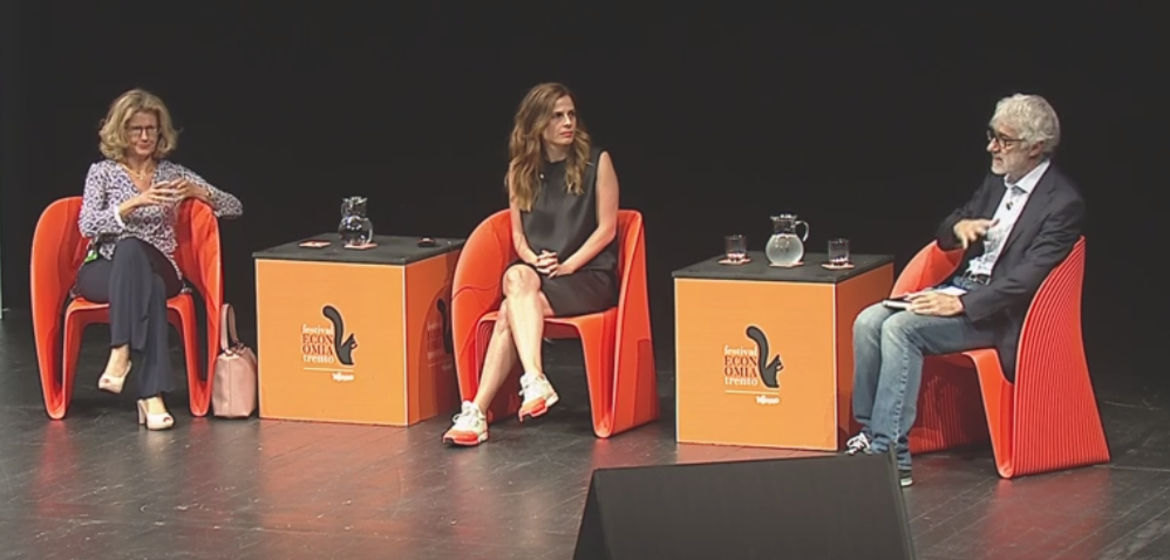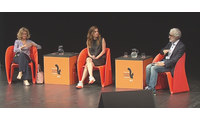
“A day I was called by Ada Colau, mayor of Barcelona, (I didn’t know her but later I have found she was named by the Guardian as “the most radical mayor of the world”) – Francesca Bria says – and she asked me to take charge of IT implementation of PA. For me, as an Italian IT insider moved to London, it was a really challenging choice with an IT world still dominated by men at 70%, but I accepted,. My first task was to rethink social services from a technological (nor technocratic) point of view, but starting from citizens’ needs”. That means job market, education, transport system, transition in energy consumption, social security and public housing. “How IT can help in citizen/PA relationship? How the process has to be managed by PA? With a sharing democracy – explains Bria - but in a bottom-up way, not the contrary”.
“I completely agree with my Barcelona’s colleague – states Roberta Cocco, with over 25 years of working experience in Silicon Valley IT industry – since I have received, as Francesca, a call by the mayor of Milan for the same purpose: either do I accepted. The challenge was (and it still is) to set a plan in order to simplify the relationship between PA and citizens through a cultural change in technology use of PA”. Three main strategies have been put in place: first, finding an appropriate way of cooperation between public and private sector; second, setting up new guidelines for digital implementation of PA (see the spirit of “civil servant” expressed by Diego Piacentini, also main speaker during the Trento Economics Festival); third, “exploiting” the role of international excellence played by Milan in some key sectors, updating and implementing platforms already proved during the Expo. “Anyway, it is not an ideological technology - adds Cocco –, rather a data driven process finalized to understand how to operate in a predictive way towards citizens”.
Some citizens’ concerns are focused by reason on privacy and data security. “How can PA grant and keep safe citizens’ data? Which capital gain – asks Luca De Biase - can be provide to citizens through IT implementation?”. “Of course we need a democratic control of data and a new social contract about digitalization – replies Bria – but at the same time we need to implement IT education, starting obviously from school. The goal is how to beat old-fashioned paper-based bureaucracy”. “In Milan we are doing the same – states Cocco – and with Barcelona (and Trento as well) we are partner in a couple of project, concerning transport, housing, social security and energy services. Yet, we should consider that big data are stratified (it means not accessible to everybody) and aggregated (not individual)”.
Some examples of IT application in PA in both cities? “In Barcelona we studied the implication of the so-called “citizen minimum income” - points out Bria - recombining it with other different mechanisms and measures such as support in transportation fees, housing policies, energy tariff. Anyway, to reach the goal we should act at local, national and European level in the same direction”. “In Milan we are working on two main principles: to introduce IT in less added value activities (digitalized protocols, documents management) – outlines Cocco - valorizing at the same time human resources of PA in higher added values tasks. For instance, automatic translators helps our PA workers to manage multicultural environment typical of Milan suburb, or educating elder citizen to use IT in their relationship with PA, it contributes to provide a better service, reducing lines at the bureau.”
“If we may find a conclusion of what we heard tonight here at the Teatro Sociale – concludes De Biase – it is that we know very few about IT, about its penetration in PA, about efforts of people involved in the process, as well as about implication that change would have in a near future. Luckily, the Trento Economics Festival does exist”.
https://twitter.com/economicsfest








